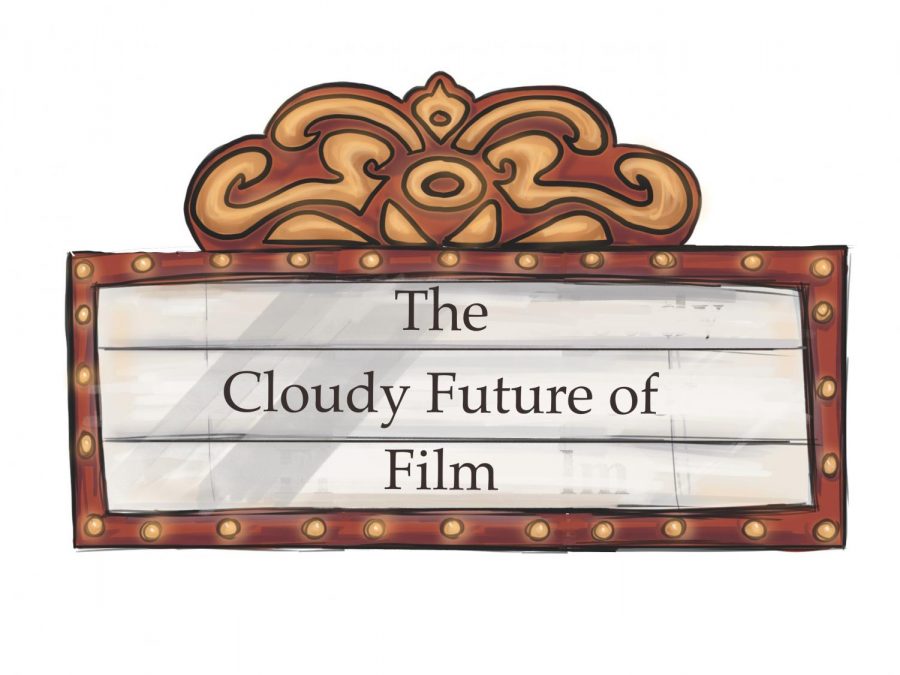The Cloudy Future of Film
The highly contagious Coronavirus, has heavily impacted the film industry. Movie theaters have struggled after forced closures and reductions A in maximum capacity, leaving the future of cinema up in the air.
December 3, 2020
As the U.S. economy slowly returns to normal after one of the worst recessions of all time, one industry may be forever changed- the entertainment industry, cinema specifically.
Starting in March Covid-19 restrictions forced closures in major markets hurt theater chain’s pockets.
Constant delays in production have plagued many films, and studios are reluctant to release their movies.
They expect a low turnout and a disappointing box office revenue due to the coronavirus.
However, these problems have opened the door to unexpected alternatives.
In the past, streaming services like Netflix and Hulu developed and produced original movies for their subscribers, but now, some major studios have begun to turn to online releases for their feature films.
Disney released “Mulan” to its Disney+ subscribers for the hefty price of $30, and Amazon recently acquired the distribution rights to the upcoming “Borat” sequel for Prime Video subscribers.
Currently, studios are testing the waters with online releases, and most plan to release future movies in theaters.
Disney has declared themselves “pleased” with the early numbers from their “Mulan” release.
Despite these successes, Covid-19 could be the final blow to movie theaters as we know them. AMC, the largest movie theater chain in the U.S., barely avoided bankruptcy in July, while the second-largest chain, Regal, will temporarily close all locations “until further notice” in response to the delayed release of the new “James Bond” movie.
The mass delays in the production of new movies have reduced the catalog of theaters, further hurting their chances of survival.
The most notable recent release, the Christopher Nolan film “Tenet,” has made roughly $207 million worldwide on a $200 million budget but flopped domestically with revenue coming in at less than $30 million, not even approaching the amounts that his previous films made. This has caused a ripple effect and has pushed other movie releases back.
Some of the losses can be attributed to the forced closure of theaters in major markets like California, and we still don’t know when they will be able to open at full capacity again, if ever.
As theaters start to reopen, some are worried about the risk of going indoors for an extended period of time.
“Why would I take an unnecessary risk to compromise the health family,” junior Oliver Bates said.
Ultimately, nothing is certain. We can only speculate about what studios and theater chains will do or what will happen to them.
All that we can do is live our lives to the fullest and take the necessary precautions, and if that means that cinema will be forever changed, so be it.
















